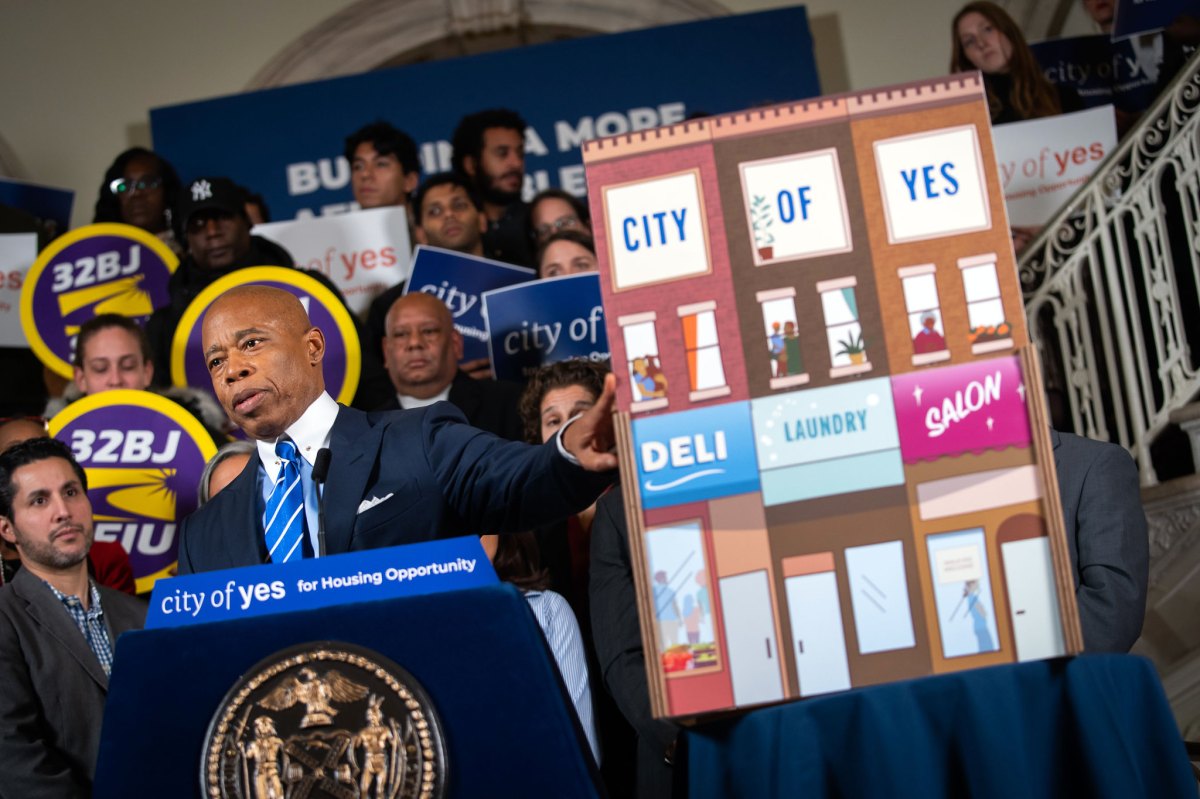
After a week of demonstrations including a sit-in, blocking traffic on Broadway and protesting on the steps of City Hall, dozens who gathered to oppose the Inwood rezoning proposal were escorted out of Council Chambers shortly before lawmakers approved the plan.
The Council voted 43-1, with one abstention, Wednesday in favor of the city Economic Development Corporation’s plan to allow larger, residential buildings in the northern Manhattan neighborhood. The changes center on the largely industrial area east of 10th Avenue and will come with $200 million for local parks, street improvements and other investments, the area’s councilman, Ydanis Rodriguez, said.
Rodriguez said he had received a threat ahead of the vote, but was confident the majority of his community supported the rezoning. Protesters who opposed the plan chanted, “Vote no” and threw fake money onto the Council floor. The disruption caused City Council Speaker Corey Johnson to order security to clear out the balcony.
“We are working so hard,” Rodriguez said before the vote. “This rezoning is not about pushing people out. This rezoning is about investing millions of dollars.”
Protesters have moved to Broadway outside the gates of City Hall – they chant “shame on you” as Councilman Chaim Deutsch exits pic.twitter.com/KVzFuIvWtV
— Allegra Hobbs (@AllegraEHobbs) August 8, 2018
Rodriguez threw his support behind the proposal after the EDC agreed to remove the commercial U — a designated strip running across Dyckman Street, up Broadway and back along 207th Street — from the rezoning plans. Where larger developments are allowed, at least a quarter of all apartments in new residences must be rented at below market-rate.
Rodriguez and Mayor Bill de Blasio’s administration believe some 1,600 of these below market-rate units, coupled with other investments in affordable housing, will help accommodate the influx of new residents in Inwood and ease the rent burden in an area that has seen little development in decades.
“The approval of the Inwood neighborhood rezoning means a fairer, stronger future for a community that has experienced decades of disinvestment,” de Blasio said in a statement. “It means affordability, security, and opportunity for residents and new immigrants alike.”
But Inwood residents and affordable housing advocates have spent months fighting the rezoning. Many fear new towers will make the area more attractive to affluent New Yorkers and incentivize landlords to force tenants out of rent-stabilized housing and deregulate their apartments. Currently, much of the housing in Inwood is rent-stabilized.
Inwood residents have also spoken out against plans to replace the Inwood library with a mixed-use building, which would include a new library and pre-K on the ground floor.
Manhattan Borough President Gale Brewer, Rep. Adriano Espaillat (D-Harlem) and the local community board have all opposed the rezoning as well.
Stephanie Frias, an Inwood resident, was among a handful of protesters who gathered on the steps of City Hall before the vote Wednesday. She said the benefits touted by Rodriguez were not enough to justify his support for the rezoning.
“He just says, ‘Oh, it’s going to create jobs; it’s going to create opportunities’ — maybe more opportunities for the privileged people who will be living uptown, but not for those of us who actually (already) live uptown,” said Frias, 26.
When asked about the opposition, Rodriguez said he had listened to his constituents and believed the rezoning would help everyone.
But that did little to quell concerns among some Inwood residents, who screamed, “Shame on you,” to legislators leaving City Hall after the vote.
Ava Farkas, who has been working with the Northern Manhattan is Not for Sale group, said the group plans to hold a demonstration this weekend to highlight how many Inwood residents now fear being priced out of the neighborhood.
“I feel heartbroken that developers’ interest always seems to trump the interest of the community,” said Farkas, who works for the Metropolitan Council on Housing. “It’s appalling; it’s atrocious. And I think what gives me comfort and inspiration is seeing how hard this community fought back.”


































